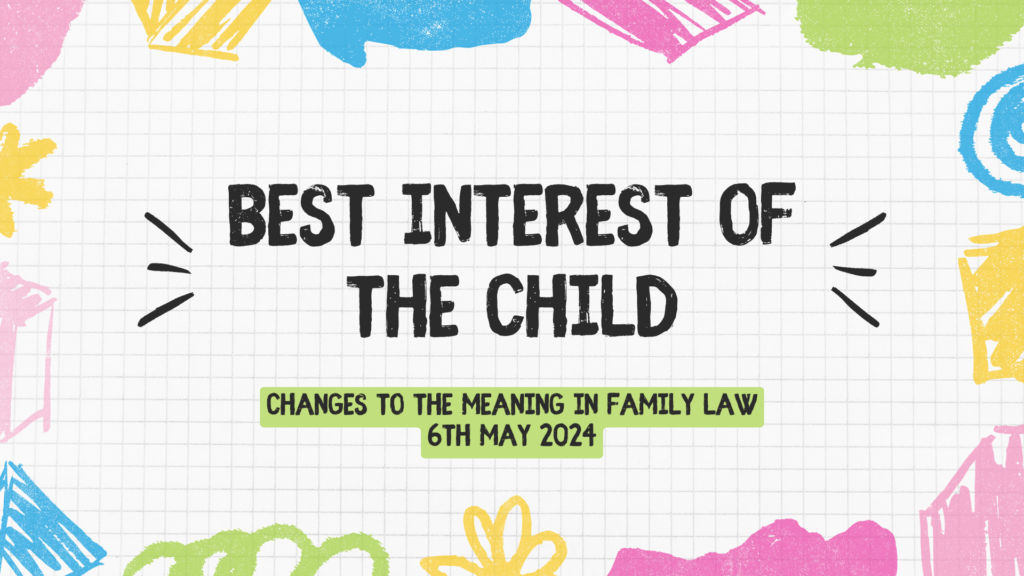Transcript of this video
[00:00:00] Joanne Law: The way that the family law system considers the best interest of the child is going to change on the 6th of May 2024 in Australia. Before the change there are a large number of factors, 16 in total. That’s going to change to six. Let’s have a look at each of them. Safety remains the most important thing.
[00:00:26] What arrangements would promote the safety, including safety from family violence, abuse, neglect and other harm of the child? And what’s new is each person who cares for the child, whether or not they have parental responsibility. Hopefully this is going to improve the safety of children and other members of the family.
[00:00:50] The next best interest of the child factor is any views expressed by the child. The United Nations Convention on the Rights of the Child says in Article [00:01:00] 12 that a child who is capable of forming their own views has the right to express those views freely, in all matters affecting them, and to give effect to this the opportunity to be heard either directly or through a representative.
[00:01:12] It’s part of Australia’s, compliance with our obligations under the UN, convention. In, um, the courts, there’s opportunities for family reports and in family dispute resolution, there’s, opportunities for child inclusive practice. The third factor is the child’s needs.
[00:01:34] What are the child’s developmental, psychological, emotional, and cultural needs? Each of these need to be considered for each of the children. Are there any specific factors that will be impacted to a greater or lesser extent by the care arrangements able to be provided by either parent or other family members?
[00:01:57] That’s the fourth factor. What is the [00:02:00] capacity of each person with parental responsibility to provide for the child’s needs? So remember the needs being examined are developmental, psychological, emotional and cultural. The next factor is the benefit to the child of being able to have a relationship with the child’s parents and any other people who are significant to the child where it is safe to do so.
[00:02:22] This consideration really requires those working in the family law system with families and families themselves to think about who are the significant people in the child’s life, what those relationships are, and of course the safety of the child being part of those relationships. And the sixth and final consideration is anything else, anything else that is relevant to the particular circumstances of that child.
[00:02:51] The change in focus is really looking at the individual child and their specific needs, their safety, and their [00:03:00] relationships. Here you are again, this is the wording of the six, considerations regarding the best interest of the child that are going to become part of the Family Law Act 1975 due to the Family Law Act Amendments.
[00:03:14] This is taking effect on the 6th of May 2024. In Family Dispute Resolution, Family Law Mediation, and if you end up going to court, the focus is going to increase on the parents ability to understand and provide for all of their children’s needs. Also, children will be given greater opportunity to express their views. It’s going to be really important for parents not to try and force that process. It definitely doesn’t mean that children should be required to make all the decisions about their parenting arrangements. That is the job of adults. But it does mean that they should be given the opportunity to have, input and [00:04:00] express their views and concerns.
[00:04:02] I’m Joanne Law, co founder of Interact Support and a Family Dispute Resolution Practitioner. If you’ve got any questions about parenting arrangements, making parenting agreements or parenting plans, Please feel free to get in touch with interact. support or any family dispute resolution practitioner.
[00:04:23] Family dispute resolution practitioners are family law mediators with postgraduate qualifications. We understand family violence. We understand parenting arrangements. We’ll do our best to help your family work out arrangements that are in the best interest of the child.

